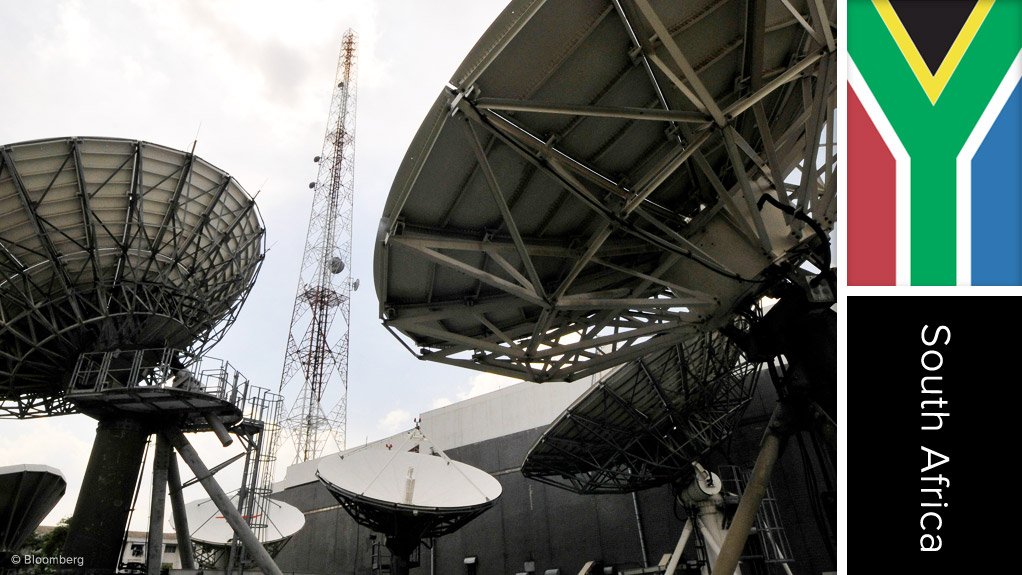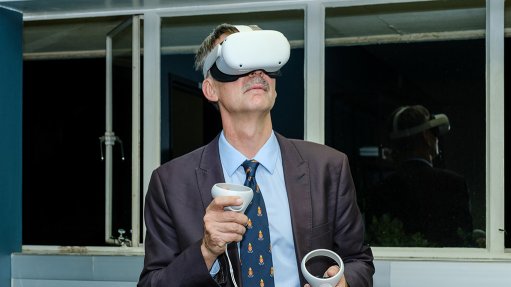Digital broadcasting migration project, South Africa
Name of the Project
Digital broadcasting migration project.
Location
South Africa.
Client
The Department of Communications (DoC).
Project Description
Digital terrestrial television (DTT) is the implementation of digital technology to provide more channels and/or better picture quality and sound using a conventional television antenna or aerial, instead of a satellite dish or cable connection.
In 2005, State-owned enterprise Sentech announced its plans to roll out DTT using digital video broadcasting terrestrial (DVB-T) technology, in time for the 2010 FIFA World Cup.
Initially, there will be two DVB-T transmitters for each location or site.
The first phase of the project involves upgrading the Sentech broadcast network and duplicating the current analogue network channels on a digital system.
Most of the 220 sites needed to broadcast DTT to 92% of South Africa's population are in place, but have to be upgraded to become fully digital. Once that process has been completed, DTT and analogue systems will run simultaneously (a dual-illumination process) until South Africa is ready to switch off analogue transmission. This decision will be made by government.
Consumers will require a set-top box (STB) to decode the signal, even for public broadcasting and free-to-air channels. The STBs are expected to be subsidised.
Once the migration to DTT is complete, the country will no longer have exclusive use of the frequencies.
Potential Job Creation
Not stated.
Value
About R10-billion has been spent on the project to date, which, besides the STBs includes the accumulation of infrastructure build, distributions, installations and public awareness programmes, besides others.
Duration
The project is ongoing.
Latest Developments
The South African government announced steps in October to join fellow African nations that have migrated to broadcast digital terrestrial television, despite missing the June 2015 target.
"The mere fact that it has been 11 years since Cabinet approved this project, and we are still this far behind, underlines the challenges of the [previous] delivery model. It will be foolhardy . . . to continue on this path, and yet there is no progress," Communications Minister Nomvula Mokonyane has said.
"Again, we have to take into account that the technological landscape has changed relative to the environment when Cabinet approved the project in 2007. From a government perspective in particular, the declining public funds is a stark reality, which we have to deal with. Therefore, revising the delivery model became inevitable. This is the work that we carried out jointly with the Advisory Council."
A revised delivery model has since been approved by Cabinet and Mokonyane has said that her department is now putting systems in place to accelerate its implementation.
"Ladies and gentlemen, you will recall that during our maiden Budget Vote speech in Parliament earlier in May, we committed to getting the project back on track so that South Africa can join Zambia, Kenya, Malawi, Rwanda, other countries in International Telecommunications Union's (ITU) Region 1 and some of our BRICS partners who have migrated their broadcasting system to digital," Mokonyane said in October.
The ITU is a specialist agency tasked by the United Nations to focus on information and communication technologies.
South Africa missed the International Telecommunication Union's deadline of June 17, 2015, owing to disagreements among broadcasters and alleged legal wrangling and power struggles between the then newly established departments of Communications, and Telecommunications and Postal Services.
Faith Muthambi, who was South Africa's Communications Minister until then President Jacob Zuma reshuffled his cabinet on March 30 last year, had set a new deadline of June 2018.
Mokonyane has said that the DoC hopes to switch off analogue television and move to digital by July 2020, or sooner.
In the meantime, the Minister has confirmed that the Free State will be the first province to be switched off on December 31, 2018.
The massive digital migration process involves shifting broadcasters from analogue to digital signals and the process is key for opening up more frequencies and faster mobile broadband services.
Key Contracts and Suppliers
None stated.
On Budget and on Time?
After years of delay, the DTT project remains beset with numerous challenges inhibiting the full transition from analogue to digital broadcasting.
Contact Details for Project Information
DoC, Mish Molakeng, cell +27 82 469 3997.
Sentech, tel +27 11 691 7000.
Comments
Press Office
Announcements
What's On
Subscribe to improve your user experience...
Option 1 (equivalent of R125 a month):
Receive a weekly copy of Creamer Media's Engineering News & Mining Weekly magazine
(print copy for those in South Africa and e-magazine for those outside of South Africa)
Receive daily email newsletters
Access to full search results
Access archive of magazine back copies
Access to Projects in Progress
Access to ONE Research Report of your choice in PDF format
Option 2 (equivalent of R375 a month):
All benefits from Option 1
PLUS
Access to Creamer Media's Research Channel Africa for ALL Research Reports, in PDF format, on various industrial and mining sectors
including Electricity; Water; Energy Transition; Hydrogen; Roads, Rail and Ports; Coal; Gold; Platinum; Battery Metals; etc.
Already a subscriber?
Forgotten your password?
Receive weekly copy of Creamer Media's Engineering News & Mining Weekly magazine (print copy for those in South Africa and e-magazine for those outside of South Africa)
➕
Recieve daily email newsletters
➕
Access to full search results
➕
Access archive of magazine back copies
➕
Access to Projects in Progress
➕
Access to ONE Research Report of your choice in PDF format
RESEARCH CHANNEL AFRICA
R4500 (equivalent of R375 a month)
SUBSCRIBEAll benefits from Option 1
➕
Access to Creamer Media's Research Channel Africa for ALL Research Reports on various industrial and mining sectors, in PDF format, including on:
Electricity
➕
Water
➕
Energy Transition
➕
Hydrogen
➕
Roads, Rail and Ports
➕
Coal
➕
Gold
➕
Platinum
➕
Battery Metals
➕
etc.
Receive all benefits from Option 1 or Option 2 delivered to numerous people at your company
➕
Multiple User names and Passwords for simultaneous log-ins
➕
Intranet integration access to all in your organisation




















